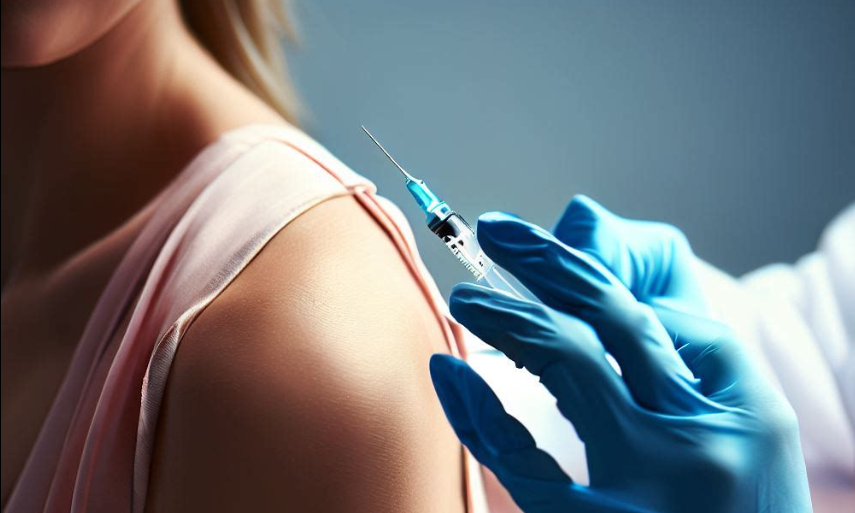The act of travelling, no doubt, opens doors to a vast range of opportunities including the means to explore and understand the rich tapestry of varied cultures worldwide. These engagements provide once-in-a-lifetime experiences that linger in the memory for years. But, the essence of voyaging beyond the familiar is, at times not without its pitfalls. Travellers interact with different environments, climates, and regions, situations which can inadvertently lead to numerous health risks. Therefore, one integral part of health-protective measures, particularly with an international traveller in mind, is the proactive use of travel vaccinations.
Travel vaccinations are essential shields that offer protection against numerous diseases that are often endemic in certain regions of the world. When an individual is immunised with these vaccines, their immune system gets stimulated, thereby provoking a defence response. This reaction readies the system to guard against particular diseases which might be alien and unusual to a person originating from a different part of the globe. A classic example here is the requirement of a Yellow Fever vaccine for those intending to visit select regions of Africa, an area where this disease is in rampant prevalence.

The significance of ensuring efficient vaccination measures prior to travelling holds benefits that are not only confined to an individual but span beyond personal aspects to address public health interests. In a world where boundaries are gradually dissolving, making way for an increasingly interconnected environment, travel vaccinations play a commendably vital importance. It aids in the critical prevention of the spread of diseases on an international scale and goes a long way in fortifying global health security.
One must not overlook or underestimate the importance of vaccinations in the context of travel. Far from being an additional chore or expenditure, these health reinforcements reduce the possibility of contracting serious illnesses, in turn ensuring a more fulfilling and safe travel experience. In turn, this aids in building a robust health safety net, benefitting not only the individual traveller but also playing an essential part in the bigger picture of global health.
Travel vaccinations is indispensable and multi-faceted. It serves to protect the individual, contribute to broader public health efforts, and can even help alleviate the burden on health systems in countries with high disease prevalence. Grounded preparation, coupled with a sense of responsibility, makes for a positive travelling journey and a significant stride towards a healthier world.
Types of Travel Vaccines and their Application
In public health travel immunizations preventing the spread of infectious diseases across international borders. They comprise mainly of three categories: routine, recommended, and required. Each category has distinguishing characteristics with respective merits tailored to different travel needs.
The routine vaccines, for instance, are not solely prescribed due to travel plans. They cover diseases such as measles, mumps, rubella, and polio. The motivation behind these vaccines is to maintain public health in the face of contagious diseases. Thus, it is essential for not just every traveler but every individual to ensure that they receive these routine vaccines, reinforcing their immunity.
Recommended vaccines are explicitly prescribed to individuals traveling to certain regions where particular illnesses are prevalent. These vaccines serve as shields against diseases which are endemic or common in the targeted travel destinations. Information such as one’s medical history, travel destination, and expected activities during the journey also dictate the need for these endorsements. Instances of recommended vaccines include those protecting against Typhoid, Hepatitis A and B, and Japanese Encephalitis.
Shifting the focus to required vaccines, international health regulations mandate these for individuals seeking entry into specific nations. They primarily guard against illnesses that pose considerable health threats in the countries concerned. An example of such a vaccine that mandatory for travel to certain regions is the Yellow Fever vaccine.
Each category plays an indispensable role in safeguarding both individual and global health. Preventative healthcare, as epitomized by travel vaccines, is an integral aspect, shielding us from possible diseases lurking in unfamiliar environments. More so, provisions such as these showcase how aspects of health care have adapted to accommodate our globalized world. Before embarking on any journey, it is essential to affirm whether the required, recommended, and routine vaccines have been administered. Understanding and adhering to these requirements not only ensure one’s health and safety but also contribute to the well-being of the global community. Travellers are strongly urged to consult healthcare providers for established knowledge and advice on the necessary precautions tailored to their specific health needs and travel plans.
Preparing for Travel

Preparation for travel necessitates a keen and informed approach, particularly in relation to safeguarding health. One of the essential steps in this leadership-focused approach is securing suitable vaccinations. Attending to this matter with due precision is paramount to successful travel health planning. The timing of vaccinations, for example, is critical. The majority of these health-protective agents necessitate a few weeks to reach full effectiveness. Some may even warrant repetitive doses, extending over predetermined periods.
An initial pre-travel health consultation emerges as a critical path in determining the requisites for outbound health measures. A health consultation is a discerning step in the travel prepping calendar, allowing for considerations such as the travel itinerary, the health status of the individual, along with potential health risks associated with the travel locale. Considerations of travel-related conditions also factor into the consultation outcome. These might include exposure to regional diseases, climatic acclimatization challenges, or necessary preventative medications.
Expert health practitioners, due to their specialized knowledge, can deliver valuable insights. These insights subsequently empower travelers to make informed decisions about their vaccination requirements. With the gathered information, travelers can promptly ensure that they are adequately protected and ready for their adventure.
Investing the time to comprehend the nature and function of required vaccines, their application methods, and timing is more than a mere procedural requirement. It enhances the overall travel experience by ensuring the traveler’s health and well-being remain unscathed throughout their journey. With a clear understanding of the vaccines’, desirable timing for the immunization schedule, and the necessary post-vaccination care, travelers can enjoy their adventure to its fullest while also demonstrating a sustained commitment to personal and public health.
Staying alert, informed, and proactive regarding health matters is a key component of responsible tourism in the current global environment, amidst shifting health landscapes and evolving travel advisories. It underlines a significant responsibility to oneself and a broader a public health commitment.
As a vital footnote, this article attempts to offer a general overview of travel-related health considerations and is not intended to replace a consultation with a healthcare professional. It is always prudent to consult with a health professional and receive individualized medical advice before initiating any travel vaccination schedule or embarking on any international travel.